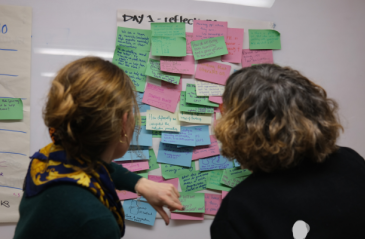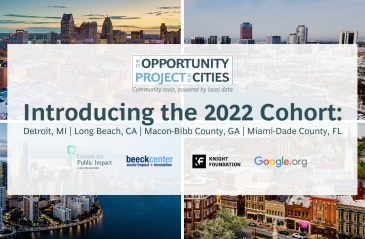
Learnings from Urban Imaginaries – Georgia

Andrew Adonis: Few understand the best combination between policy, planning and administration
Share articleAndrew Adonis: Reform is definitely a marathon and not a sprint
Share articleAndrew Adonis: There are great swathes of public service where there are no PISA-style rankings
Share articleWe put our vision for government into practice through learning partner projects that align with our values and help reimagine government so that it works for everyone.
Few can match the reforming zeal of Andrew Adonis. His is a political career marked by a constant drive for change and improvement, irrespective of role or responsibilities. From schools to transport, city renewal to digital transformation, his approach is rooted in the belief that government can always do more, always do better, and always achieve greater impact.
A quick scroll through his Twitter feed hints at an insatiable intellectual curiosity. As befits a former Schools Minister, education comes out strongly. So, too, does transport - Adonis' government career also included includes a spell as Secretary of State for Transport - while skills reform and the arts also feature strongly. Today, his voice is also a prominent feature of debates on economic growth and regeneration, in part reflecting his role as Shadow Infrastructure Minister in the House of Lords.
Adonis is no career politician. Academia (he taught history at Nuffield College, Oxford) and journalism (with the Financial Times and The Observer) were his homes before Westminster came calling. As education advisor to Tony Blair's policy team in 10 Downing Street, he had his first glimpse of life in the UK's corridors of power, before his subsequent promotion to become Head of the Policy Unit afforded oversight across key government operations.
These roles, together with subsequent ministerial stints, gave Adonis a range of experiences both at the centre of government and on the front line of departmental delivery. When asked about the focus on impact, however, his first instinct is to draw a distinction between democratic and undemocratic systems of public administration. “Democratic systems have a far better record when it comes to delivering the goods for their citizens,” he says. “But within this group there remains much variation, and the approach to delivering results can often appear to be, and is, ad hoc in many ways.”
In part this stems from a lack of time. The pressures of the job, not to mention the 24/7 media cycle, give little time to pause for breath, let alone sit up, take stock and consider the direction of travel. “Not many people are particularly good at understanding the best combination between policy, planning and public administration,” says Adonis. “Primarily, this is because we don't really enquire about it. These systems take shape over years - often without much reflection on what is working and what isn't.”
Shortly after his election, Tony Blair said that his three priorities were “education, education, education.” Blair believed that the UK school system was in urgent need of systemic reform. With this viewpoint firmly in mind, Adonis set out to reinvent the comprehensive school. This approach took shape in the creation of academies, a new type of all-ability independent school funded centrally by the state but self-governing and enjoying a greater degree of autonomy. The process was not without its challenges.
“It was only eight years into the academies programme when I felt confident that my leadership was no longer essential to its survival and development,” he admits. “Reform is definitely a marathon and not a sprint. It took four years of hard pounding before academies moved from being a small experiment to a national policy. The decision to set a target of 200 academies came when there were still only 12 open. Even then, it took another year to gain decisive momentum, and it took an additional two years to gain real political consensus.”
Education, though, is one of the few policy areas where there has been a concerted attempt to spotlight outcomes and share the lessons learned. The OECD's Programme for International Student Assessment (PISA), a triennial international survey that aims to evaluate education systems around the world by testing the skills and knowledge of 15-year-olds, has quickly established itself as a pivotal cross-border resource. To date, students representing more than 70 OECD members have participated, with PISA 2015, the current assessment, focusing on science.
“PISA has had a profound impact on the way many countries view themselves,” says Adonis. “Take Germany's experience. There was a well-established belief that it had a very high-performing school system, but the PISA research suggested otherwise. It was a wake-up call as it shone a light on impact and outcomes that hadn't been there previously. You might quibble with some of the methodology, but broadly it was pretty robust and it prompted some serious conversations and soul-searching. As a result, more countries became more focused on outcomes. It certainly had an electric effect in Germany.”
Interestingly, the countries at the top of the PISA rankings are all very different. Few similarities exist between Finland and Singapore, for example, and this has meant that it has been more challenging to extract the key lessons from their approaches. Adonis, however, remains a strong proponent of the programme. “We need more organisations like the OECD to act as a catalyst, without any preconceived agenda, and shine a light on performance and outcomes,” he says. “There are too many organisations that lobby for change but do it on ideological grounds and assumptions. Many that do exist are often national and start, for example, on the basic premise that markets are good and therefore we need more markets. This is a very different approach from starting with outcomes and then working back.”
To Adonis' frustration, PISA has yet to be replicated across many other policy areas. “There is now a greater appetite for different countries to engage in this type of debate, but again it varies,” he says. “There remain great swathes of public service where there are no PISA-style rankings to guide debate.” Perhaps, in time, Adonis will seek to do something about this but for now, at least, his priority is the fast-approaching UK general election. If a return to government subsequently beckons, there is little doubt that he will once again be spearheading the drive for radical change from within.









